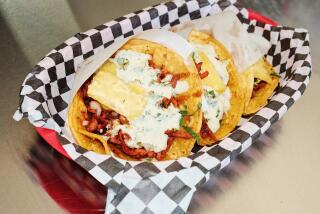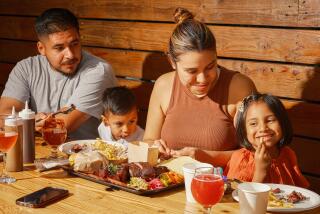Rene ‘Ray’ Ramirez, an L.A. champion of Texas-style barbecue, dies at 47
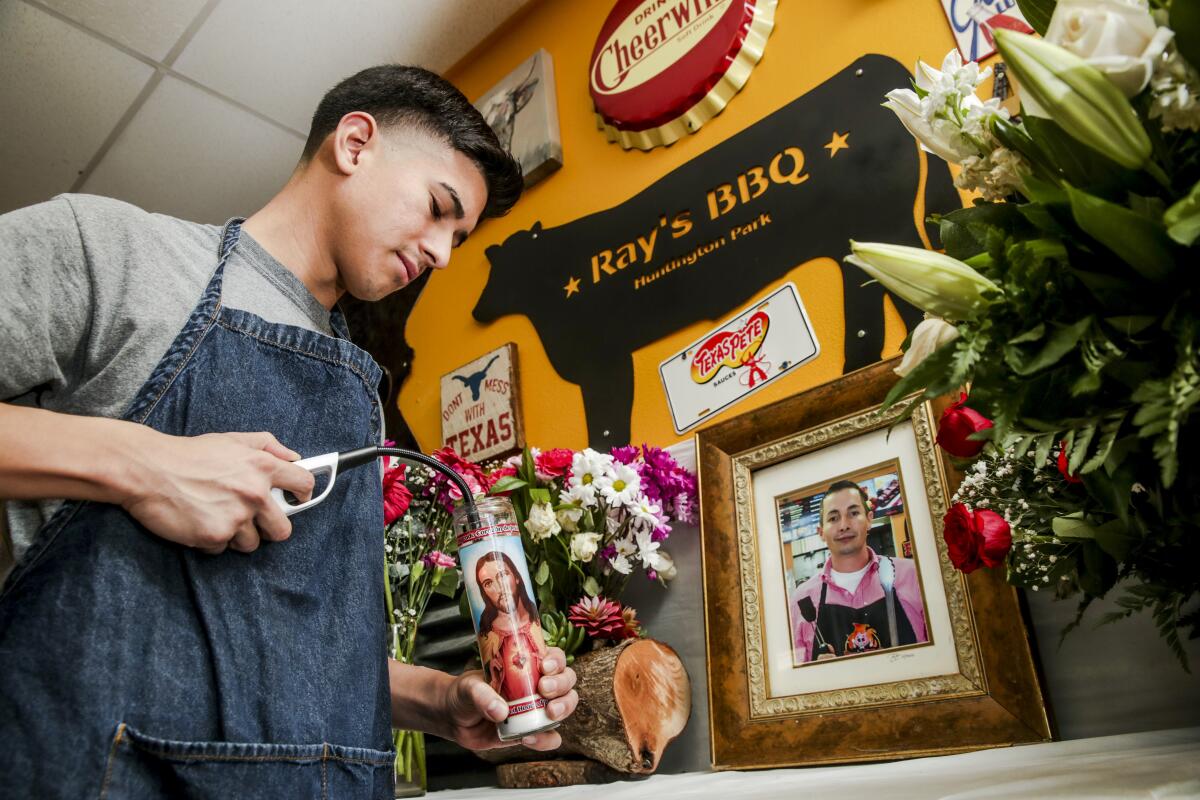
- Share via
Sebastian Ramirez says his father, Rene “Ray” Ramirez, always said that he expressed his feelings in his cooking.
“He always told me, ‘In the food, you could taste how I felt that day, how I felt the day before,’” Sebastian said, recalling one of L.A.’s earliest modern adopters of Texas-style, wood-smoked meats, and the founder of the family’s Huntington Park restaurant.
“He expressed his emotions in that, and this is where he’d come when he was going through it; he would, no matter how bad it was or what he was thinking, come here to put in the meat, come to take it out, and make sure that everybody would come and try a piece of his food.”
The senior Ramirez died Feb. 7; Sebastian said that his father died by suicide after a years-long battle with depression. Ray’s Texas BBQ is his dad’s legacy. In his honor, the family is continuing to run the restaurant, he said, and they’re “putting 100% of our hearts into this.”
Before opening the bricks-and-mortar business in a strip mall at 6038 Santa Fe Ave., where brisket fanatics and regulars sought out the Central Texas-style barbecue, Ramirez drew lines of fans down a residential Southeast L.A. street when he would stage a weekend pop-up in his mother’s backyard.
Inspired by the method of cooking with wood, a technique prevalent in El Salvador, where he spent years of his youth, the self-taught cook bought a ceramic kamado grill and began experimenting with smoked pulled pork. At first, he gave his sandwiches away for free to test the waters.
With encouragement, he began selling them from his mother’s backyard, advertising his new barbecue pop-up on Facebook message boards. The former car salesman and cellular-phone store manager threw himself into the study of smoked meat and expanded to ribs, purchasing multiple Traeger pellet smokers, sometimes lining them up in the backyard seven or eight in a row.
After visits from city inspectors and the county health department, he had to shut down the pop-up operation, and he decided to open his first and only bricks-and-mortar restaurant, launching it in August 2014. It served the staples from his pop-ups and a range of sides ubiquitous in barbecue, and some inspired by Salvadoran recipes.
It also proved to be a school-of-life experience for Sebastian: After Ramirez’s eldest child earned poor grades and multiple suspensions from high school, and showed little direction in life, Ramirez told his son he would need to start working with him.
Over time Sebastian, who is now 23, became his father’s second-in-command. “He told me the same day he passed away that I was his right hand,” he said. Now he’s running the restaurant, which reopened two days after Ramirez’s death.
The father and son would set off on road trips across the country to try whole-hog barbecue from Rodney Scott’s BBQ in Charleston, S.C., and brisket from Austin’s Franklin Barbecue. Ray’s recipes, inspired by these experiences, will live on in the restaurant.
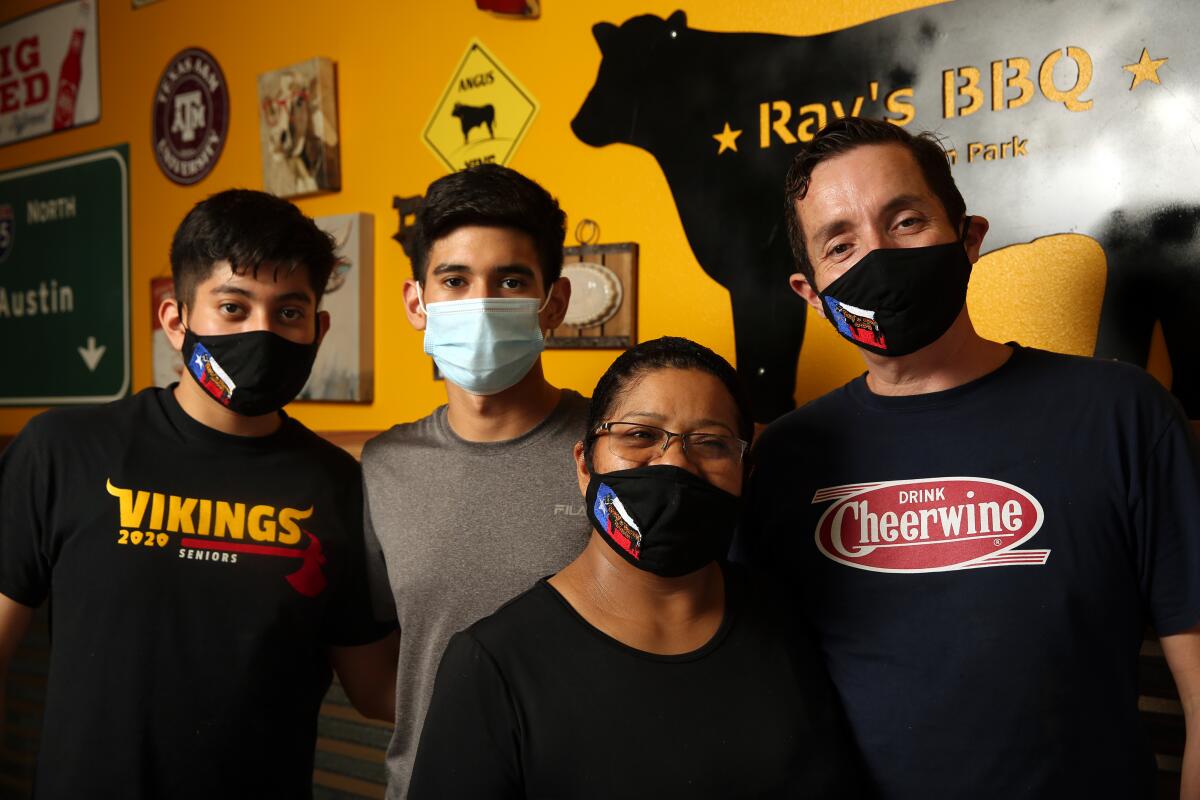
“The last few days have been tough,” Sebastian said. “I had the choice of mourning after that and choosing to not open the restaurant, but my mother and my brother [and I] decided no matter what happened, we did what my dad loved the most, and that’s where we feel closest to him: being in here.
“Just the smell, as soon as I walk in the door, it makes me feel like everything’s OK, and he’s here.”
Long before the senior Ramirez found his love of barbecue, he lived what Sebastian calls “a split life.”
Born in Los Angeles to a mother who still works long hours cleaning homes in some of L.A.’s most affluent neighborhoods, Ray was raised partially by his mother, and partially by his maternal grandparents in El Salvador, sometimes for years at a time; the back-and-forth of his own childhood inspired him to provide a stable and nurturing environment for his children at home and within the restaurant years later.
After graduating high school in Los Angeles, he continued visiting El Salvador and, eventually, a friend introduced him to his future wife, Anabell. It was love at first sight.
There was no texting, no social media. Separated by nearly 3,000 miles, they would talk on the phone. He would visit for two or three months, and then return to the States to work, eventually flying back upon occasion as a surprise. “He would call my mom and say, ‘Hey, I’m right outside on the corner,’” Sebastian said.
Sebastian was born in El Salvador. When he was 2, a traumatic home robbery shook the young family. Ramirez, who’d been living paycheck to paycheck, somehow, almost immediately, found the money to fly them both to Los Angeles. The tight-knit family grew with the birth of Raul, 19, and Isabela, 7.
Ramirez is survived by his children, his wife, and his mother, Elsa Gonzalez.
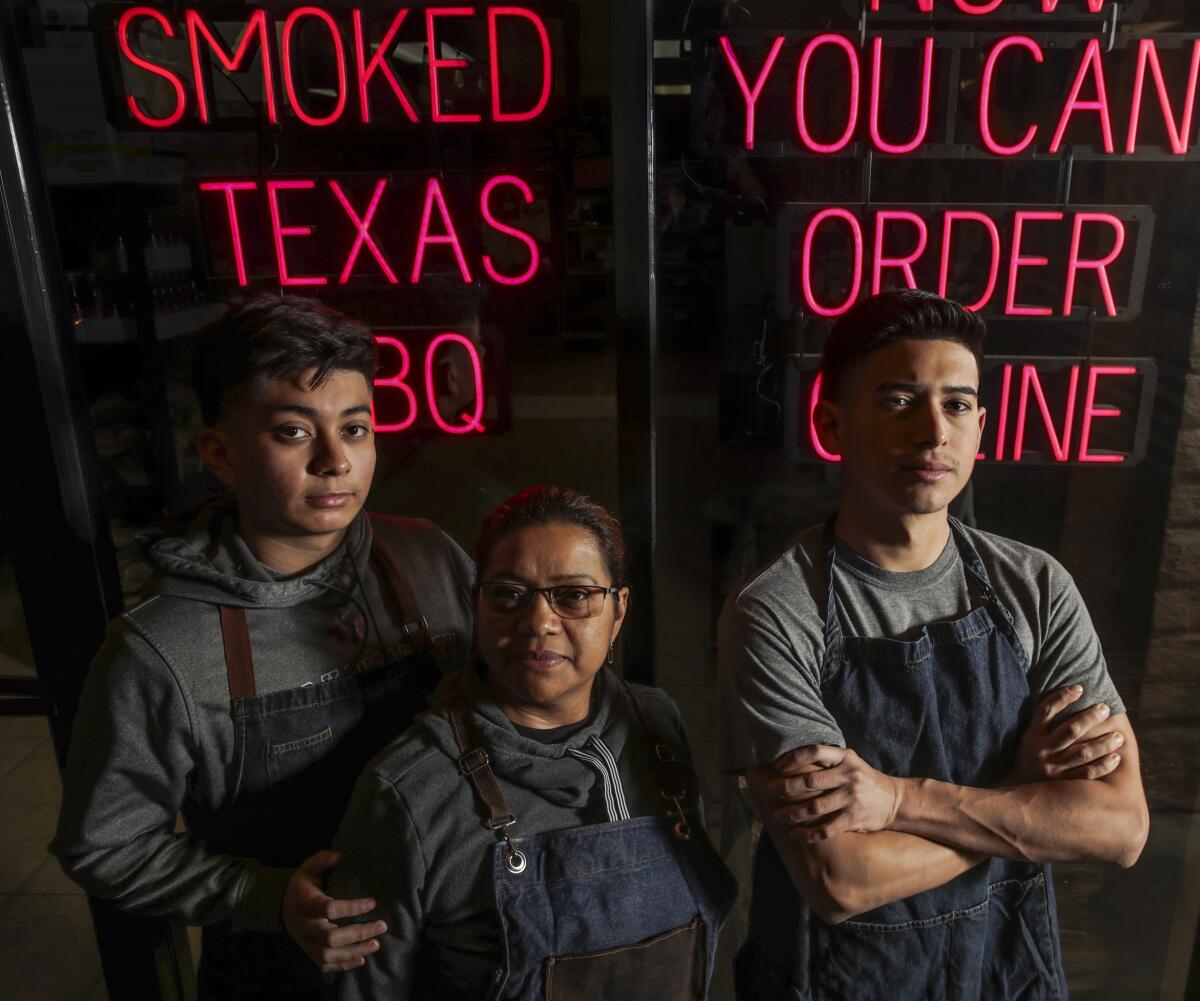
Sebastian now keeps the same schedule his father once did: working until early afternoon, then returning to the restaurant to put the brisket in the smokers, to cook low and slow overnight.
Around 5 a.m. he leaves the house with his mother, as the sun is just rising. While Anabell prepares side dishes — such as her Salvadoran rice studded with brisket — and readies the space for the day, Sebastian takes meat off the smokers, and puts more in. Once the doors open, he takes orders and converses with regulars and new customers, trying to emulate the friendliness his father extended so warmly. It is, he says, a life skill he’ll never forget.
Raul, newer to working full-time at the family business, wipes down tables, and greets and checks on customers just like their father did, too.
“My brother is my right hand now,” Sebastian said. “The same way my dad said I was like his right hand, my brother’s my new right hand — and the same tips, tricks and ideas my dad would give to me, I give to him. It makes me proud, and I know that this is just the start of a new beginning.”
More to Read
Eat your way across L.A.
Get our weekly Tasting Notes newsletter for reviews, news and more.
You may occasionally receive promotional content from the Los Angeles Times.


